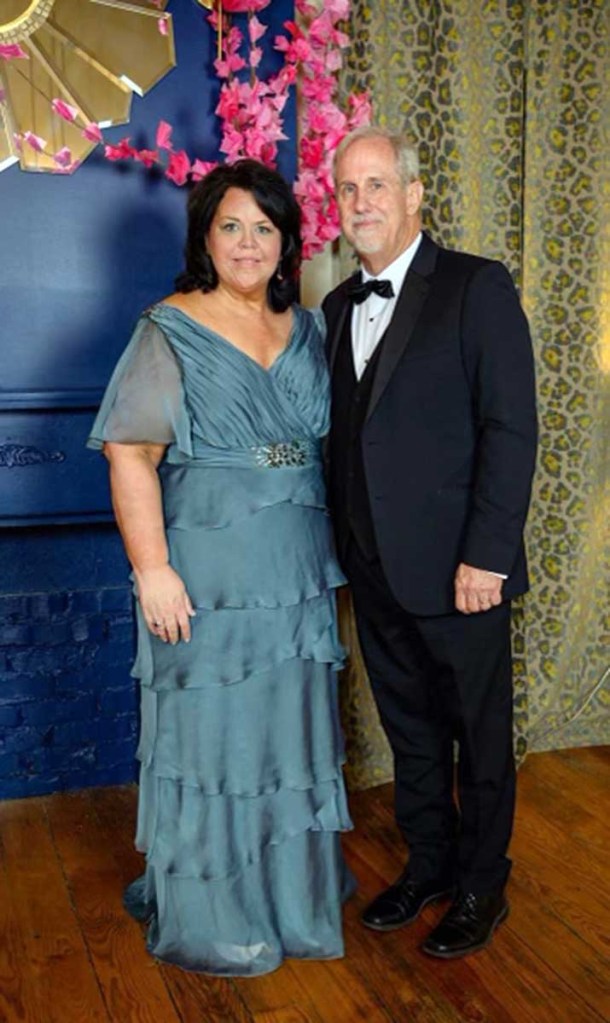‘My spirit wasn’t broken’: 20 years after her breast cancer diagnosis, Maria Stanford advocates for self-exams, mammograms
Published 12:00 am Saturday, October 5, 2024

- Maria and Steve Stanford at the 2024 Cullman Regional Foundation Gala. The couple has attended every Gala since 2005.
It’s been almost 20 years since Maria Stanford said her 1½-year-old son, Jack, saved her life.
Since joining Cullman Regional in 1996, Stanford has done just about everything to promote health and wellness at the hospital, but she’s admitted that, back in the day, she tended to overlook her own preventative care.
“Everyone in our field, we promote wellness and we promote early detection. That’s one area I had not done well myself,” Stanford told The Cullman Times in 2006.
In December 2004, heading into the Christmas holiday, Stanford had a lot to be thankful for, and a lot going on.
“We (husband, Steve) were building a house, our jobs were going well, meeting our life goals, enjoying life,” Stanford, the Cullman Regional Foundation executive director said during a Think Pink Luncheon in Oct. 2018.
“One day in December, I went to take a nap with my son. I laid down on my left side and my right hand kind of fell to the front of my chest. I felt a knot and I thought this isn’t right, but went on to sleep with Jack. I woke up and thought, I’ll go see my OB/GYN in a few weeks and get that checked out. So Christmas and New Year’s passed and I thought, I better get an appointment to see about this place that I found.
“My sweet son, actually saved my life.”
Stanford had a mammogram, then an ultrasound at Cullman Regional Women’s Center.
“I ended up having 3 malignant lesions — I’ll always remember hearing Dr. Nicholas, say you have breast cancer … you’ll need to see a surgeon right away. I ended up floating to the top of the room and not following what he shared from that point forward. I was in shock.
“I realized I was about to be in the biggest fight for my life. The first step of my journey was having a lumpectomy and then I had another surgery for a port — this was placed in my chest and was ready to for chemo treatments.”
Stanford would endure 4 months of chemotherapy that led to hair loss (“Which wasn’t important to me. … I kept going and would wear pretty scarves around my head.”) and pushed her into early menopause. Stanford never stopped working, only taking off Wednesdays for treatment (“By Friday night I would get sick.”).
“I persevered,” she said.
What followed was a double mastectomy and lymph node dissection (the cancer had spread to her lymph nodes leaving her with a daily battle with Lymphedema in her right arm) and 10 weeks of daily radiation treatments.
“I thought my time battling cancer was coming to an end, however, I was about to have a new fight on my hands. I went through genetic testing at UAB, I was told that I was BRAC I & 2 positive and that ovarian cancer was my next medical condition to deal with.”
Stanford waited through the holidays and almost a year to the day of her first cancer surgery; she had a complete hysterectomy due to cysts on her ovaries.
“My body went through so much in a year, my spirit wasn’t broken, just slightly bruised. I had the power of prayer and a family who loved me unconditionally. I had an army of work friends supporting me and a community who lifted me up.”
Stanford, Steve, Jack and daughter Mary Katherine received cards, care packages, inspirational gifts and books. Many of those things, Stanford still has today.
She even wrote notes to her children so they would have letters at different stages in their lives … “should something happen to me.”
“My work family was so supportive, my church family was so giving, other organizations stepped up and provided dinner for us three nights a week for 9 months,” Stanford said. “We had so many people and churches praying for all of us.”
The Stanfords are now empty-nesters. Jack is a junior at Auburn and Mary Kate is a first year law student at the University of Alabama.
“We’re a house divided,” Stanford said.
“I look back now and realize that I only made it through because of the power of prayer along with my faith and the support from my family and friends.”
Now, almost a 20-year survivor of breast cancer, Stanford advocates for preventative care such as, annual mammograms, following up with a physician if you find something abnormal and be consistent with regular self-exams.
“I don’t have a family history of breast cancer. I was only 33-years-old when I received my diagnosis. I hadn’t even started the annual mammograms. I want to encourage you today, take time out at the beginning of each month and do an exam in the shower. It just takes a few minutes. Even men should be checking.”





